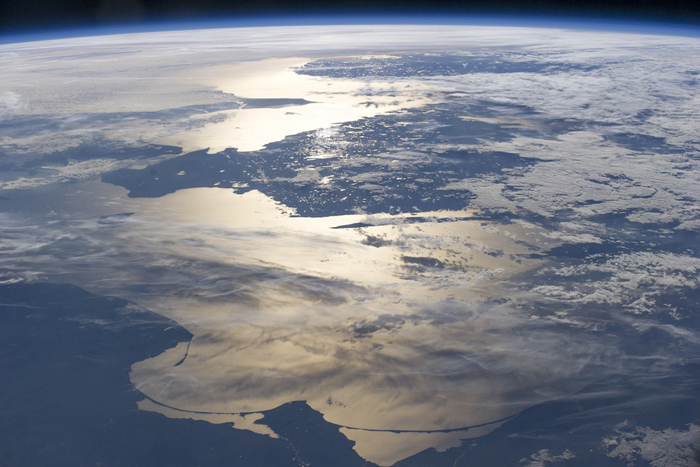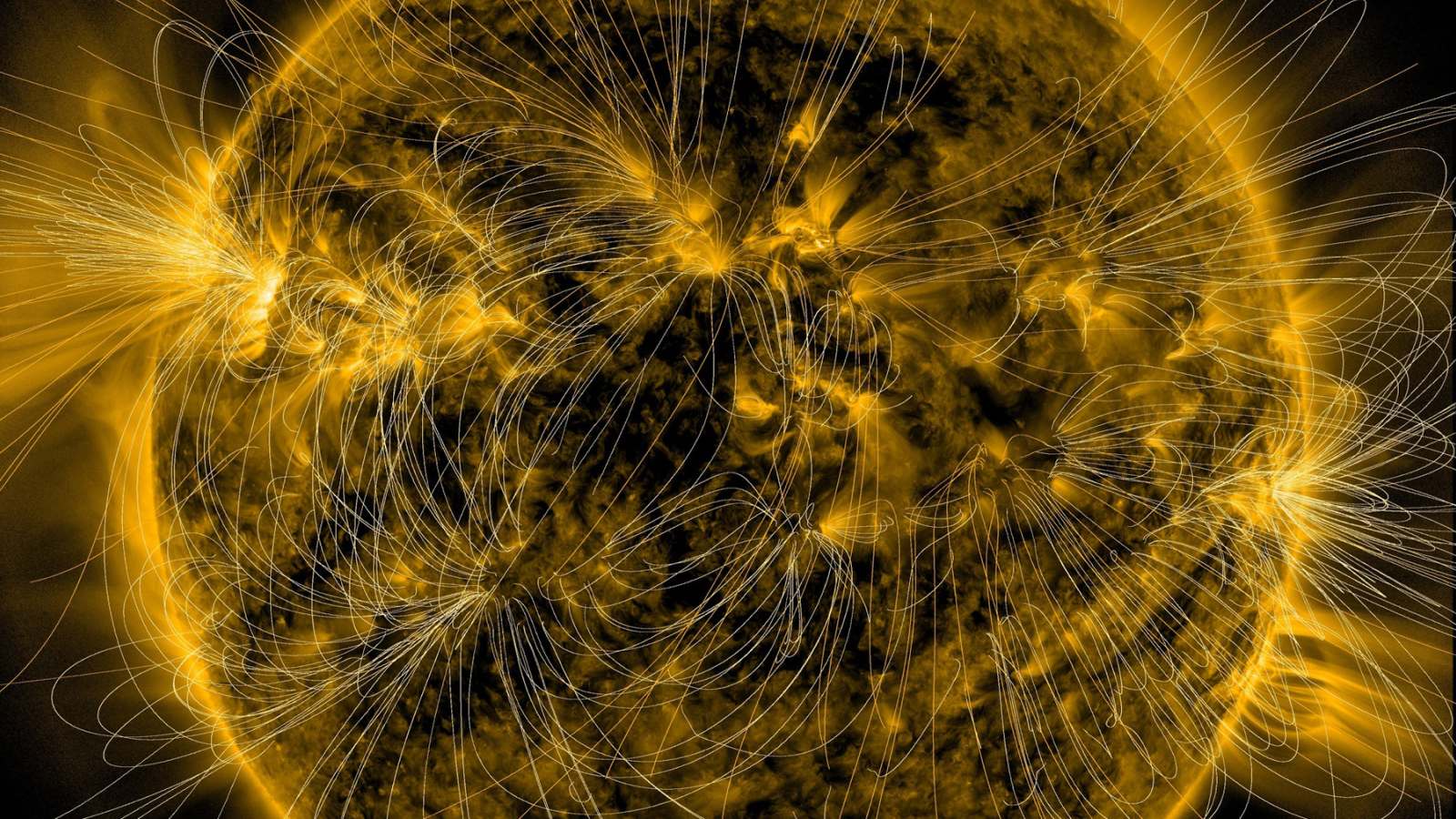Baltic Sea Turned into 'Mirror' in Photo from Space

The setting sun turns the southern Baltic Sea into a mirror in a new photograph taken from the International Space Station (ISS).
Snapped by a member of the Expedition 40 crew on June 15, this picture shows Poland, Russia and Lithuania along its lower border. A string of barrier islands loops along the coast of the southern Baltic Sea. Sweden is visible as the large, protruding land mass in the center of the photograph; across the Øresund Strait — known as the Sound in English — is Denmark, visible on the left edge of the photograph. Beyond Sweden, closer to the horizon, is Norway. Moving north from the Øresund Strait, the water widens into the Kattegat Sea and Skagerrak Strait, which connect the Baltic Sea to the North Sea.
The sparkles that seem to cover Sweden are actually small lakes, according to NASA's Earth Observatory, which released this photo today (July 22). The astronaut who snapped the picture was looking backwards along the ISS's orbital path at sunset, and captured the scene using a Nikon D35 digital camera with an 80 millimeter lens. The angle of the sun causes the reflective effect on the water.
Digital cameras have been a standard piece of equipment aboard the ISS since 1995, according to NASA. Earth portraits date back even longer — astronauts have been snapping shots of the planet with handheld cameras since the early 1960s.
Editor's Note:If you have an amazing nature or general science photo you'd like to share for a possible story or image gallery, please contact managing editor Jeanna Bryner at LSphotos@livescience.com.
Follow Stephanie Pappas on Twitter and Google+. Follow us @livescience, Facebook & Google+. Original article on Live Science.
Get the world’s most fascinating discoveries delivered straight to your inbox.

Stephanie Pappas is a contributing writer for Live Science, covering topics ranging from geoscience to archaeology to the human brain and behavior. She was previously a senior writer for Live Science but is now a freelancer based in Denver, Colorado, and regularly contributes to Scientific American and The Monitor, the monthly magazine of the American Psychological Association. Stephanie received a bachelor's degree in psychology from the University of South Carolina and a graduate certificate in science communication from the University of California, Santa Cruz.


